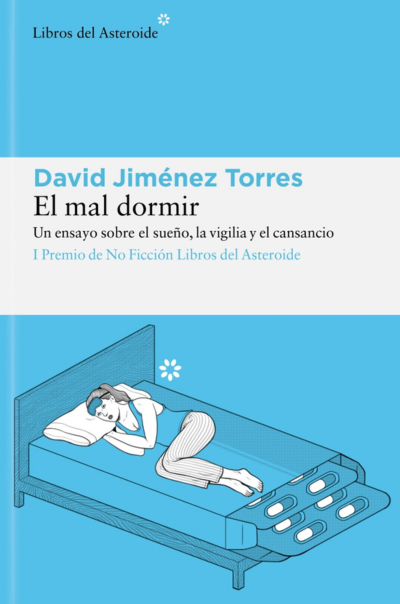Many times, when analysing the historical circumstances that the world is going through in these first decades of the century -—with its continental, regional and local particularities— it is customary to place the financial and economic crisis, the industrial renuclearisation of a number of countries, the technological revolution, the 9/11 attacks or the Chinese hegemony at the centre of many conversations. But can we look the other way while the Mare Nostrum burns? The events that are unfolding in the Mediterranean acquire an importance of global dimensions, and, therefore, deserve to be treated as a priority, before which a decision must be taken in the European elections on Sunday.
First of all, it is convenient to make a brief note of the relevance of this sea in the configuration of world history. The Mediterranean has witnessed the emergence of great civilizations, from the Mesopotamian to the Egyptian, from the Greeks to the Romans, from Byzantium to the Ottoman Empire, joining that multiplied voice. In this sense, it represents, as its own etymology indicates (Mar Medi Terraneum), a sea in the middle of the earth: symbol of creativity, welcoming, search for knowledge and meeting point of the human being. It is, in short, a space that geography has forced to be a bridge, and also, to build them.
This does not mean that this place has been free of conflicts and violence throughout its trajectory. The Mediterranean has also witnessed wars, which were caused by the most powerful men of those times. Therefore, when these warfare ended, the interconnectivity of the Mediterranean continued its course. This sea acts as a border between Africa, Europe and Asia, but not as a separator. In fact, contrary to the misguided use that is used to make the word border, it comes from the Latin “fronte” and “–ero”, which means “placed” and “placed in front”, which does not necessarily imply separating. What is placed in front is the «other» —the African, the European or the Asian—, to whom we identify. This recognition of otherness gave rise to two main attitudes. On the one hand, the rejection of dogmatisms referring to cultural boundaries, which, in turn, has channeled so much and such diverse cultural wealth over the centuries. And on the other, the predisposition to assume and easily integrate the changes that occurred. Following this line, one could say that “when the Mediterranean sneezes, the world catches a cold”.
From the Jasmine Revolution in Tunisia (2010) to the ongoing Syrian War, through the White Revolution of Egypt, the Libyan Liberation Front and the creation of its failed State, the Yemeni uprising, or the movements in Algeria, the stability of North Africa has broken down. Not to mention the expansion and strengthening of the Islamic State, or the escalation of tensions between Iran and Saudi Arabia. As a consequence of these conflicts, the migratory flow has increased exponentially in record time, and its effects have disrupted the roots of Europe.
As Mark Leonard, Susi Dennison and Kraster point out in the European Council on Foreign Relations, “the European Union was created by societies that feared their past (dominated by wars). Now, Europeans fear their future”. The great challenges facing Europe are defending the international liberal order before the withdrawal of its, until now, main promoter, the United States, as well as the rise of China, Islamist radicalism, Brexit, the large migratory flows through the Mediterranean, etc. Scenarios that have sharpened the resurgence of classic antagonisms in the old continent, in addition to the eruption of political leaders such as Víktor Orban (Hungary), Matteo Salvini (Italy), Marine Le Pen (France), Nikolaos Michaloliakos (party leader of the Greek Golden Dawn), etc.
The Mediterranean, once again, becomes the point of convergence between Europe, Sub-Saharan Africa —with its migratory flows— and the Middle East —with instability, armed conflicts, Islamist fundamentalism. Challenges that cannot be solved by building walls at European borders, but neither by leaving them unprotected. In the same vein, it is also not a serious diplomatic policy to adopt slogans of the ‘Welcome refugees’ type in the West, while the European Union is disbursing billions of euros in Niger for the construction of a border there, and thus making it the new country-gendarme, as was Gaddafi’s Libya.
The principle of sovereignty of each State is undeniable, and the effective control of its borders is a key element of it. In addition, international migration law allows a citizen to leave his country and enter it, but not to do the same in a foreign country. Thus, states have an obligation to protect their borders, but even so, building walls has not been proven as the most effective formula to accomplish this. As the French philosopher Régis Debray pointed out, «a well-protected border is a vaccine against the epidemic of the wall». In this sense, the defense of the liberal order, which includes promoting economic activity, and adopting a much more serious diplomacy with governments on the other side of the border must be the European alternative for all these challenges. The status quo cannot be outlined as an option in the minds of European voters who care about their future. These have to bet on change.
Spain is a key actor when it comes to safeguarding the Mediterranean vocation: one capable of being a bridge or building one
Spain, because of its location in the Mediterranean, is, together with Turkey, the gateway to Europe both by land and sea. Therefore, it has much to say. In addition, as Julián Marías observed in his Intelligible Spain, this country has been characterized as the most European of all, being the only one who decided to be when he had everything against him under Muslim occupation. For Marías, «the rest of European countries are so because, what would they be if not European?». Spain has historically been an integrating nation, with solid experience of ‘otherness’, and initiator of the transatlantic adventure. In addition, it has undergone a great positive change, following its integration into the European Union and embracing liberal positions in its political, economic and social position.
For these reasons, Spain is a key actor and must act accordingly, in order to safeguard the Mediterranean vocation to be a bridge or build one. To do this, Spain must give his testimony, so that the Mediterranean continues to gather multiple voices, remain open to changes and avoid cultural dogmatisms; an objective that is materialised today in the defense of the liberal order.
Therefore, it would be disastrous for European parliamentary elections not to focus on the Mediterranean: For what happens in it has decisive consequences worldwide. It is predicted that in the following decades of this century there will be a very strong immigration crisis, and a growing instability with contagion effect, both in countries located in the Mediterranean and in those that are not. And, on the other side of the Mediterranean, other actors who question the liberal order that has made Europe great in recent decades have also entered the scene. The continent cannot give up on this struggle, because it would mean losing its identity. The European defence of the liberal order is not the problem, but the solution, and it is decided to a great extent in this election.






